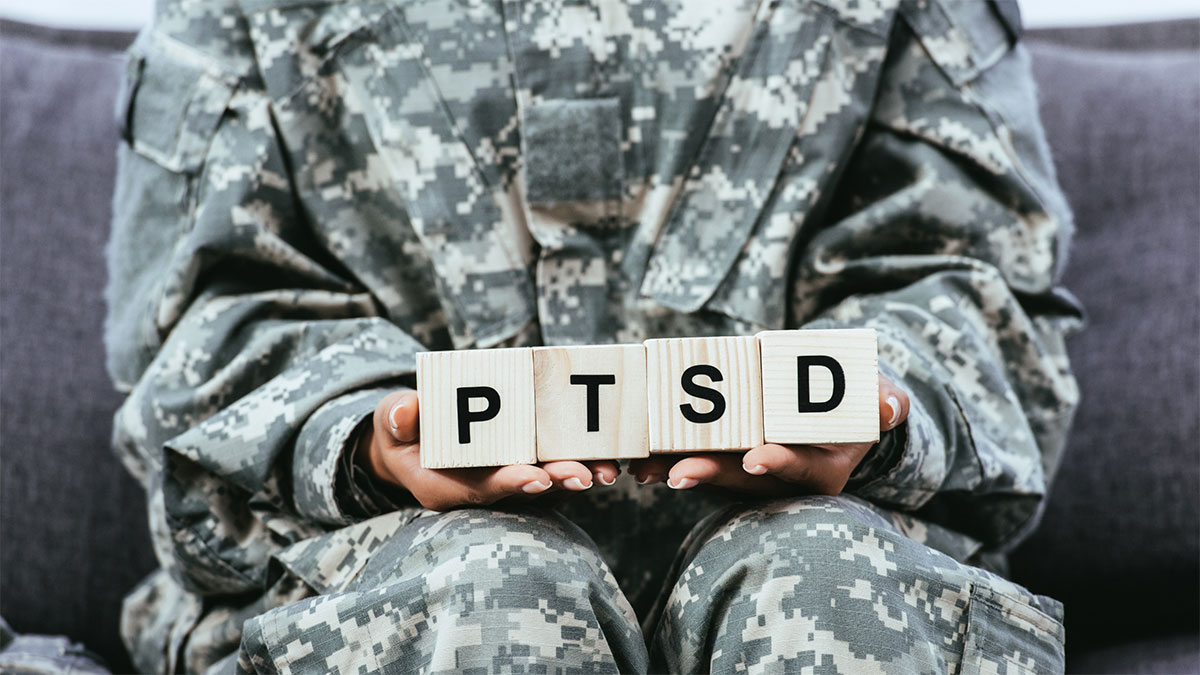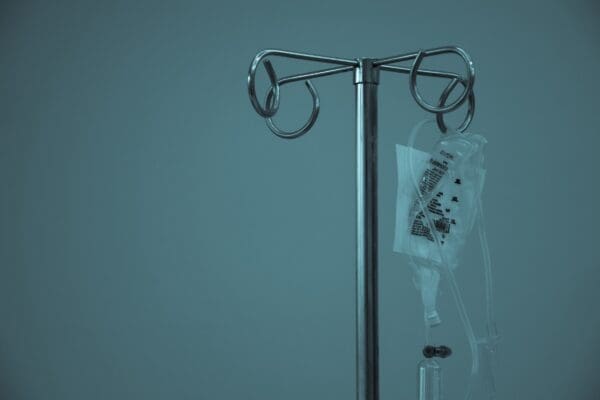Medical Editor: Dr. Lynn Marie Morski, MD, Esq
Post-traumatic stress disorder (PTSD) is a mental health condition that can occur after a person experiences or witnesses an event in which serious harm occurred or was threatened, such as military combat, sexual assault, or being involved in a natural disaster. Those who suffer from PTSD may re-experience the traumatic memory through nightmares and flashbacks, may avoid people and places associated with the trauma, and might feel emotionally numb.
Scientists are currently studying the role of MDMA as an adjunct to psychotherapy as a treatment for PTSD that has not responded to more traditional methods of treatment. MDMA promotes the release of serotonin, dopamine, and noradrenaline, which may decrease anxiety and enhance relaxation and positive mood. Combining MDMA with psychotherapy may allow patients to more effectively participate in therapy without increased anxiety and overwhelm surrounding their traumatic memories.
In December 2019 the FDA approved the Multidisciplinary Association for Psychedelic Studies (MAPS) for an expanded access program of MDMA-assisted psychotherapy for the treatment of PTSD. While the therapeutic protocol is still being tested, this program will allow for “early access to potentially beneficial investigational therapies for people facing a serious or life-threatening condition for whom currently available treatments have not worked, and who are unable to participate in Phase 3 clinical trials.”
What is PTSD
Post-traumatic stress disorder (PTSD) is a condition that can occur in the aftermath of a traumatic event, such as natural disasters, sexual assault, or military combat.
PTSD symptoms can range from mild to severe. PTSD symptoms can include re-experiencing the original trauma through flashbacks or nightmares, avoiding situations and thoughts that remind one of the event, negative changes in beliefs and feelings about oneself and others, hyperarousal (difficulty sleeping), an inability to recall key features of the trauma (amnesia) and outbursts toward people who are perceived to be like those associated with the original trauma.
Complex post-traumatic stress disorder occurs when one has been exposed to several types of traumatic events over a long period of time, such as sexual abuse combined with physical assault or domestic violence.
Complex PTSD symptoms can include:
- Behavior difficulties. People who have experienced prolonged or repeated exposure to traumatic events may struggle with aggressiveness and impulsivity. They may misuse drugs or alcohol or participate in self-destructive behavior.
- Emotional difficulties. Those who have experienced PTSD can struggle with regulating their emotions and may experience strong emotional reactions triggered by certain events. They may experience outbursts of anger or rage and an inability to control their responses to stressful situations. Many people who suffer from PTSD struggle to effectively cope with the everyday stressors of life.
- Cognitive difficulties. PTSD can alter cognitive processes such as attention, problem-solving, planning, and memory. This can make it difficult to concentrate at work or to complete everyday tasks or routines.
- Interpersonal difficulties. Feelings of isolation or loneliness are common in people who have experienced PTSD. Survivors of PTSD often feel little emotional connection with others and may feel that their experiences have made them different from others, or that they are psychologically damaged or broken and unable to create bonds and connections with others.
- Somatization. Somatization occurs when psychological concerns manifest as physical symptoms such as pain, weakness, or shortness of breath. They may experience other physical symptoms such as chronic fatigue or gastrointestinal issues.
According to research by Professor David Nutt at the Imperial College of London, “in the United States Military the incidence of PTSD in people returning from [the war in] Iraq was as high as 18%. And in fact, more soldiers returning from Iraq and Afghanistan have committed suicide from untreated PTSD than actually died in the conflict.”
What is MDMA?
MDMA (3,4-methylenedioxy-methamphetamine) is one of the most popular recreational drugs used by young adults today. Despite MDMA’s popularity as a party drug, MDMA was originally developed as an adjunct to psychotherapy. Its therapeutic applications have been studied and endorsed by medical professionals for decades.
The recent success of MDMA-assisted psychotherapy in clinical trials offers hope for those who suffer from PTSD and have not seen success with more conventional treatment programs. In fact, in a study of subjects with treatment-resistant PTSD, 56% of patients who received MDMA-assisted therapy no longer met DSM-IV criteria for PTSD immediately following the study. Patients reported that their PTSD symptoms improved for at least a year after the experience. Follow-up studies indicated that 67% of those whose PTSD symptoms improved no longer met the clinical qualifications for a diagnosis of PTSD at the twelve-month mark after study completion.
In 2017 the FDA granted Breakthrough Therapy Designation for MDMA assisted psychotherapy in the treatment of PTSD. Breakthrough Therapy Designation is “a process designed to expedite the development and review of drugs that are intended to treat a serious condition and preliminary clinical evidence indicates that the drug may demonstrate substantial improvement over available therapy on a clinically significant endpoint(s).”
Phase III studies on MDMA for PTSD are still in the early stages, but continued research will further explore how MDMA-assisted therapy can help heal the psychological and emotional damage caused by sexual assault, war, violent crime, and other traumas.
Are ecstasy, molly, and MDMA the same?
The MDMA that we’re discussing here is not the same as ecstasy or molly that you may hear about being used as a party drug. These two substances, while still containing MDMA, may also contain unknown and/or dangerous adulterants. In laboratory studies, pure MDMA has been proven sufficiently safe for human consumption when taken in limited quantities on occasion with moderate doses. Ecstasy and molly are often purchased without means to verify their purity and are often consumed in unregulated settings and without acknowledgment of safe quantities.
Since MDMA is currently unregulated, anything sold as “molly” or “ecstasy” could range from pure MDMA, to MDMA mixed with other drugs, to containing no MDMA at all. The molly market is one of the most adulterated illicit drug markets, meaning it often is cut with other substances.
This is in stark contrast to the MDMA used in FDA-approved clinical studies for the treatment of PTSD. In PTSD therapy, it is used in a regulated setting, usually on two occasions over the course of several weeks, and alongside talk therapy with one or more therapists.
Benefits of MDMA for PTSD
MDMA is not known to cause any serious side effects when taken in appropriate quantities and in a controlled setting. Studies have shown that MDMA therapy can be safe and effective when accompanied by psychotherapy.
The unique effect of MDMA in reducing fear and enhancing interpersonal trust makes it especially helpful for healing psychological damage from traumas. Because fear and loss of trust are the basis for many symptoms of PTSD, MDMA has a great potential for curing PTSD by working with the brain and mind to help people overcome fear.
MDMA can help provide relief from symptoms of PTSD in those suffering from this condition by making people more sympathetic to one another, and the drug has been known to decrease feelings of anger and hostility.
In short, the use of MDMA as an adjunct to psychotherapy for PTSD treatment can produce long-lasting improvements in the symptoms of PTSD.
How does MDMA help those with PTSD?
So how does MDMA help those who are experiencing severe symptoms of PTSD? A number of studies have shown that MDMA reduces activity in the emotional centers of the brain, including the amygdala and hippocampus. This may be responsible for how it helps patients overcome their painful memories. The amygdala and hippocampus work together to process emotions. Because people who experienced PTSD exhibit hyperactivity in the amygdala, they may experience emotions in a more extreme and unregulated way than they did before the trauma. With the use of MDMA, there is decreased activity in those areas of the brain, thus reducing the extremity of emotional responses, and allowing for deeper processing of the traumatic event.
Can PTSD be fully cured?
Although there is currently no cure for PTSD, scientists have made some progress in finding treatment for symptoms. A combination of medication and therapy is the most commonly used method to minimize symptoms such as flashbacks, insomnia, anxiety, and depression.
There is no one-size-fits-all approach to treating PTSD. Some individuals respond better to a specific treatment than others. Self-management strategies such as mindfulness and meditation work for some people, and alternative treatments like psychotherapy and having a service dog work for others.
The synthetic psychoactive chemical MDMA is emerging as a promising treatment for PTSD. Research has shown significant improvement in those treated with MDMA’s therapeutic properties rather than traditional treatments, which has proven less effective in the past.









